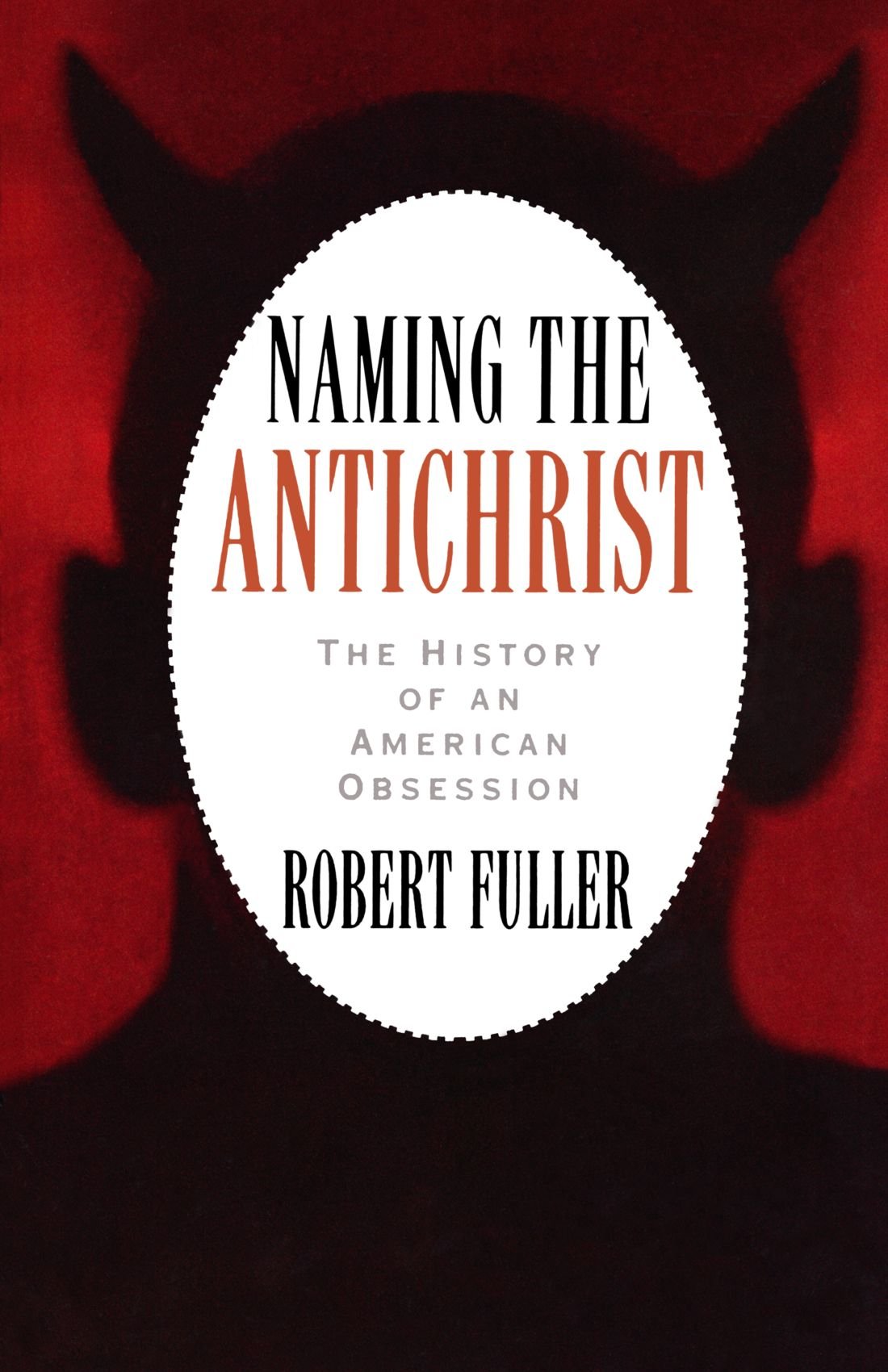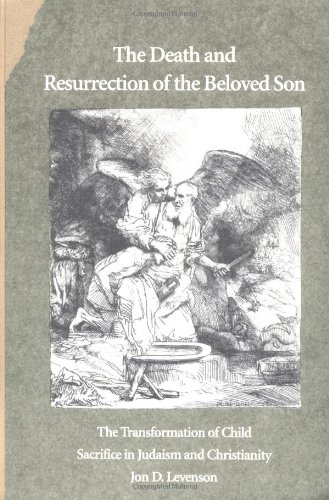Romans 8:38-39 Neither Height Nor Depth Shall Separate Us!
For I am persuaded, that neither death, nor life, nor angels, nor principalities, nor powers, nor things present, nor things to come, nor height, nor depth, nor any other creature, shall be able to separate us from the love of God, which is in Christ Jesus our Lord.
//To fully understand today’s verse, you must put yourself back in the time of Paul, an age when virtually everyone was concerned about evil spirits. The “angels” in today’s verse clearly refers to evil angels, not good ones. Likewise, “principalities and powers” do not refer, as you might think, to political powers, but to spiritual beings. Principalities and powers are particularly evil beings, very commonly referenced as such in ancient literature.
Paul is saying that all such demons are powerless before Christ. We do not need to worry about the dark forces all around us.
But what does it mean that “height nor depth” cannot separate us from the love of God? Especially when followed by “nor any other creature?” Are height and depth creatures too?
Yes! They refer to astral spirits in astronomical texts. The zenith and nadir, the highest and lowest point of the celestial sphere. Paul is probably referring to every astral spirit from the highest point to the lowest. Perhaps he means everywhere from heaven to hell.
Paul’s claim is that no demon, anywhere, no matter how powerful, can separate us from the love of God.

Book review: The IVP Bible Background Commentary
by Craig S. Keener
★★★★★
I have huge respect for Craig Keener’s work ever since his 2003 two-volume commentary on the Gospel of John. It was largely instrumental in researching for my own book about John’s Gospel, and I believe has become the primary resource for Johannine studies. So when IVP sent me this brand new second-edition 800-page New Testament commentary, I was quite excited.
As a reference book, it doesn’t disappoint. Scholarly and interesting, each book of the New Testament is given a short introduction detailing authorship and setting, and then a verse-by-verse commentary. The verses are clustered and topical, so it’s easy to page through the book looking for topics of interest. Be aware that Keener’s emphasis differs from other commentaries; he is less interested in providing simple exegesis than in painting a picture of the first-century setting whereby a saying or statement can be understood. Note the title: this is a “Bible Background Commentary.” It is about the cultural background and what was going on in Bible days that colored the writings we read two thousand years later.
It’s this focus that gives this reference book its unique niche. A few examples of Keener’s focus will help explain what makes this a must-have resource for sermon development or (in my case) writing Bible commentary:
Matthew 5:22, about the “fires of Gehenna” for someone who calls his brother a fool: Keener doesn’t delve into the history of Gehenna but speaks to its metaphorical meaning as the opposite of paradise, and how some Jewish teachers envisioned eternal torture while others believed the wicked would be burned up.
Acts 2:1-4, about the arrival of the Holy Spirit: Keener explains the Jewish anticipation of the return of the Spirit and its outpouring as a sign of the Messianic age.
1 Corinthians 11:14-15, about a woman wearing long hair as a head covering, while long hair on a man is a disgrace: Keener points out how ancient writers, especially Stoic philosophers, loved to make arguments from nature. Nature taught them that men could grow beards, but women’s hair naturally seemed to grow longer. Paul is well aware of the exceptions to the rule (such as the Nazirites) but draws on this observation more to make a point than to instruct his readers in how to wear their hair.
Intervarsity Press, © 2014, 816 pages
ISBN: 978-0-8308-2478-6

Revelation 3:16, The Lukewarm Church
So then, because you are lukewarm, and neither cold nor hot, I will vomit you out of My mouth.
//Revelation’s letters to the churches contain some fascinating subtleties that only come to light with historical study. I’ve written about some of these before. Here is another one.
The church at Laodicea was described as distastefully lukewarm, and God says he will spew them out of his mouth. I’m guessing John of Patmos (who wrote these words) had visited Laodicea, and came away less than impressed by the drinking water.
Laodicea was built not far from an enormous hot spring, and water was piped from this spring to the city. However, by the time it got there, it was lukewarm, fit for neither cleaning nor drinking.

Genesis 49:22, Joseph, the Wild Donkey
Joseph is the foal of a wild donkey,
the foal of a wild donkey at a spring—
one of the wild donkeys on the ridge.
//This is part of the blessing of Jacob to his sons, as he prepares to die. I’ve quoted the New Living Translation here, to bring out an alternative translation of this verse. Most translations read like this:
Joseph is a fruitful bough,
A fruitful bough by a well;
His branches run over the wall.
Much different. Most scholars now prefer the “wild donkey” version, which brings up an interesting question. What is Jacob telling us? How did his son Joseph acquire the ways of a wild donkey? Perhaps it goes back to the day Joseph, probably as a young man, is sold by his brothers to the Ishmaelites:
Then Midianite traders passed by; so the brothers pulled Joseph up and lifted him out of the pit, and sold him to the Ishmaelites for twenty shekels of silver. And they took Joseph to Egypt. –Genesis 37:28
Thus Joseph comes under the influence of the descendants of Ishmael. And what is said of Ishmael?
He will be a wild donkey of a man; his hand will be against everyone and everyone’s hand against him, and he will live in hostility toward all his brothers. –Genesis 16:12
Did the Ishmaelite way rub off on Joseph? The good news is this: While Joseph remained a wild donkey, he did seem to overcome his “hostility toward all his brothers.”

Mark 3:27, Binding the Strong Man
No man can enter into a strong man’s house, and spoil his goods, except he will first bind the strong man; and then he will spoil his house.
//I’ve heard this saying numerous times, by many people making different points, and quite often it’s quoted out of context. Who is the strong man, what is his house, and who is going to spoil his house?
In Mark chapter 3 (a story repeated by both Matthew and Luke), Jesus exorcised a devil from a man, but the scribes who watched this were unimpressed. Jesus, they claimed, was tapping into the power of Beelzebub; he was using the power of Satan to cast out devils.
Jesus points out what nonsense this is:
And he called them unto him, and said unto them in parables, How can Satan cast out Satan? And if a kingdom be divided against itself, that kingdom cannot stand. And if a house be divided against itself, that house cannot stand. –Mark 3:23-25
Then Jesus launches into the saying about spoiling a strong man’s house. We are to understand that Jesus sees his purpose as destroying the “house” of Satan; his hold over the earth. Satan is the strong man, and Jesus is binding him and stealing away his prisoners … like the man he freed from the devil.

Book Excerpt: John’s Gospel: The Way It Happened
Inside these pages lives a love story set aright.
About fifteen years after Revelation, a second very different work attributed to John the Apostle surfaced.[1] It is the year 95 CE, and Matthew, son of Samuel, has lived nearly three decades. This book continues my first story, Revelation: The Way It Happened, but this time our task will be much more complex, as we lack the historical clues required to settle on a determinative interpretation of the Gospel of John. We shall be forced to dig deeper this time around, if we are to unearth John’s meaning.
The mind-set of early Christians remains foreign to most believers today, two thousand years after the time of Christ. If we are to fathom Christianity’s dilemma in the first century, we must appreciate their absolute and utter conviction that the anticipated Messiah had arrived. What separated Christianity from other Judaic sects was simply this: Christians claimed the messianic age had begun. Or at least as the apostle Paul put it, the new age lived in its birth pangs. They simply had no other way to interpret the Messiah’s arrival. For Christians, the end-times had arrived.
Paul argued that Christ rising from the dead was proof that the general resurrection had begun, but when nothing more materialized of this expectation, what were Christians to think? Why did people continue to die? Why did anyone still hunger? Why were the Romans still in charge, and where hid the age of God’s rule? Christianity’s greatest disappointment was not the Crucifixion of its Messiah. It was not the martyring of its most vocal leaders, Peter and Paul. It was not even the destruction of Jerusalem and the Temple. It was that the disasters ceased, the excitement of the first century drained, and life continued as usual.
Enter John’s Gospel.
–John’s Gospel: The Way It Happened, 2013, p. xv, by Lee Harmon

Book review: Naming the Antichrist: The History of an American Obsession
by Robert Fuller
★★★★★
Will the Antichrist never quit dogging us?
This is a fascinating peek into America’s obsession with the Antichrist, from the time of our founding as a nation until today. While the Bible speaks of antichrists in only two short books–First and Second John–and while these passages refer only to people who have already lived, fundamentalist churches 2,000 years later still anticipate the arrival of a demonic force akin to Revelation’s Beast of the Sea. This “Antichrist” may take the form of an organization, like the Catholic Church, or a person, like Mussolini, depending upon whoever is in the news at the time. In latter times, the Antichrist has been discovered in computers, bar codes, rock music and the Susan B. Anthony coin.
Fuller is an oft-published professor of religious studies at Bradley University, and his writing style is precise and engaging. He carries us through dozens of America’s apocalyptic enemies, so-named the Antichrist by vigilant stalkers of the Beast, going clear back to King George III in 1777. Yankees, Masons, liberals, communists, Catholics, unions, feminists, socialists, modernists, few people have escaped demonization by various clergy in the cosmic war of good versus evil. Popes, world leaders, diplomats and too-liberal preachers are identified by name. Just wars are fought under the banner of God, spurred by apocalyptic lyrics such as the Battle Hymn of the Republic. Entire nations are portrayed as evil empires, even from the presidential pulpit, compared to the “Gog” of Ezekiel and Revelation. Charles Taylor solved the sinister mystery of Gog: Gromkyo, Ogarkov and Gorbachev, with that birthmark on the latter’s head surely disclosing his beastly identity.
Beware anyone preaching tolerance, advocating pluralism, striving for universal brotherhood, saving the whales, or hoping for world peace. Fuller rightfully observes in the final line of his book that “this relentless obsession with the Antichrist appears to have done more to forestall than to signal the realization of the Kingdom of God on earth.”
Written before the turn of the century, Fuller’s book surely struck a chord with readers mystified by the manic draw of the millennium end. At the time, over half of adult Americans expected the imminent return of Jesus, accompanied by the fulfillment of cataclysmic biblical prophecies including the appearance of Revelation’s Beast. The whole obsession would be comical to me, had it died before my own lifetime, but when Fuller got to the 70’s the tone turned somber. I remember the panic over communism, the demonization of Kissinger, and Gorbachev’s antichristic delusion that peace was possible. I remember counting the letters in Ronald Wilson Reagan to reach 666. I remember when Greece became the tenth member of the EEC, completing the ten horns of Revelation’s beast. Had the rediculousness ended with the printing of 2001 calendars, I could write it all off as the nonsense of a prior age, but it hasn’t. Our newest president has far and wide been the subject of this same religious madness.
The Antichrist may never fade away, but thank goodness for reasonable studies like this one to help us understand and cope with this odd cultural phenomenon in the United States. A must read.
Oxford University Press, © 1995, 232 pages
ISBN: 0-19-508244-3

Psalm 96:5, Idols or Demons?
For all the gods of the nations are idols: but the LORD made the heavens.
//Today’s verse presents a translation of the original Hebrew in Psalm 96. In it, the psalmist claims that the gods of the surrounding nations are all just idols.
But the Septuagint version of the Old Testament, the translation into Greek from Hebrew done in the second century BC, reflects a different opinion. In it, the word “idols” becomes “demons.” All of the competing gods are not idols, but demons.
The apostle Paul embraced this idea. Insisting that the Corinthians avoid anything to do with false gods, he calls these gods demons, not idols.
Rather, that the things which the Gentiles sacrifice they sacrifice to demons and not to God, and I do not want you to have fellowship with demons. You cannot drink the cup of the Lord and the cup of demons; you cannot partake of the Lord’s table and of the table of demons. -1Corinthians 10:20-21
This makes me wonder. If idolatry has been replaced by demonology, what do the churches of today mean when they caution against idolatry?

Revelation 12:1,4 Zodiac and the Bible
Now a great sign appeared in heaven: a woman clothed with the sun … And another sign appeared in heaven: behold, a great, fiery red dragon having seven heads and ten horns, And the dragon stood before the woman who was ready to give birth, to devour her Child as soon as it was born.
//Readers of my book about Revelation recognize this as one of the instances in Revelation that points to astrology. For twenty days out of the year, the sun “clothes” Virgo, the woman, by appearing in her midsection. At the same time, Scorpio’s claws seem about to catch her. The myth was often flavored with the idea of the dragon attacking a newborn child.
It’s easy to see the attractiveness of astrology, though it’s based on faulty assumptions about the universe. Astrology presupposes that the earth is the center of the universe, and that the celestial bodies revolve around it, suspended in space. Additionally, the ancients determined the Zodiac by presuming that the stars existed on a plane, perhaps a curved dome that covered the earth—see, for example, Genesis chapter 1. They could then divide this plane into twelve 30-degree portions.
The zodiac predates Christ by several centuries, and flourished especially in Babylon. In its Chaldean roots, astrology was practiced by the priestly caste and linked closely to religious beliefs. The figures of the zodiac were Babylonian gods. By the time of Jesus, and the book of Revelation, astrology had made inroads into Roman, Greek, even Jewish thinking.

Book Review: The Death and Resurrection of the Beloved Son
by Jon D. Levenson
★★★★★
The firstborn of thy sons shalt thou give unto me. –Exodus 22:29
Did Israel at one time offer child sacrifice to God? If so, when and how did they overcome this barbaric ritual?
Levenson takes seriously the hints throughout the Bible that Israelites once condoned child sacrifice to Yahweh, though he doubts its practice was widespread. The firstborn belonged to God, and the most pious parents considered the appropriate means of giving him to God to be in sacrifice. Levenson argues that the phrase “beloved son” (yahid) seems to have been, at least on occasion, a technical term for the son sacrificed as a burnt offering. This practice was roundly condemned by the prophets Jeremiah and Ezekiel, and in time worshipers began to understand that God would accept animal sacrifice in place of one’s favored son. The story of Abraham and Isaac is a key example.
Sibling rivalry is a common Old Testament theme, reinforced often by the outward favoring by the parents of one son over another. One would imagine the “beloved son” to be the firstborn, with all the privileges that go with that station, but the Bible breaks the rules often. Abel over Cain, Isaac over Ishmael, Jacob over Esau, Joseph, David, the list goes on. The “beloved son” is not only favored by parents but God-chosen, and belongs to God … either in sacrifice or by atonement.
This theme of the sacrificial death of the beloved son was never purged from the Judaic mindset, even to the point of believing Abraham did put the knife to Isaac. Many midrashic interpretations of the sacrifice of Isaac refer to his blood being spilled. Perhaps all of his blood, depending upon which midrashic commentary you read.
Intelligent, deeply researched, and reasonable, this is a look at just about every “beloved son” in the Bible except the one you expect: Jesus. It goes without saying that Jesus is the ultimate beloved son, but he gets only a brief nod here and there. Still, this book will inevitably make you think differently about what the death of Jesus meant. There is a bit of New Testament theology thrown in, but the focus is really the development of a theme through the Old Testament … the theme of giving the one you love most to God.


















 354 Circles
354 Circles
 603 Goodreads Friends & Fans
603 Goodreads Friends & Fans

 Hello! I'm an author, historical Jesus scholar, book reviewer, and liberal Christian, which means I appreciate and attempt to exercise the humanitarian teachings of Jesus without getting hung up on any particular supernatural or religious beliefs.
The Bible is a magnificent book that has inspired and spiritually fed generations for thousands of years, and each new century seems to bring a deeper understanding of life’s purpose. This is true of not only Christianity; through the years, our age-old religions are slowly transforming from superstitious rituals into humanitarian philosophies. In short, we are growing up, and I am thrilled to be riding the wave.
I avidly read all thought-provoking religion titles. New authors: I'd love to read and review your book!
Hello! I'm an author, historical Jesus scholar, book reviewer, and liberal Christian, which means I appreciate and attempt to exercise the humanitarian teachings of Jesus without getting hung up on any particular supernatural or religious beliefs.
The Bible is a magnificent book that has inspired and spiritually fed generations for thousands of years, and each new century seems to bring a deeper understanding of life’s purpose. This is true of not only Christianity; through the years, our age-old religions are slowly transforming from superstitious rituals into humanitarian philosophies. In short, we are growing up, and I am thrilled to be riding the wave.
I avidly read all thought-provoking religion titles. New authors: I'd love to read and review your book!
 Hi! While Lee writes the articles and reviews the books, I edit, organize, and maintain the blog. The views expressed here are Lee's but I'm his biggest supporter! :-)
Hi! While Lee writes the articles and reviews the books, I edit, organize, and maintain the blog. The views expressed here are Lee's but I'm his biggest supporter! :-)
Connect With Me!